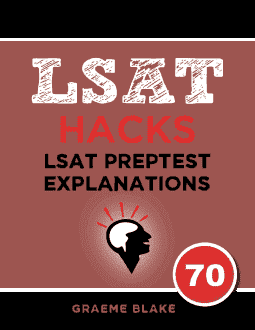QUESTION TEXT: A science class stored one selection of various fruits…
QUESTION TYPE: Flawed Reasoning
CONCLUSION: The fruits tested stay fresh better in cooler temperatures.
REASONING: The class tested three temperatures. The coolest temperature worked best.
ANALYSIS: The class tested a very limited range of temperatures. They forget that temperatures can be much colder than 10 degrees.
Their conclusion is that colder is always better. That's absurd – it would mean that fruits stay fresh the longest at absolute zero.
Maybe 10 degrees is the ideal temperature. Warmer is worse, but so is colder.
___________
- The conclusion was only about the fruits tested, not all fruit. If you chose this, you need to be more precise about what conclusions say.
- The argument didn't say that coolness is the only factor that mattered. The conclusion said that cooler temperature leads to longer-lasting freshness. That kind of language doesn't mean that all other factors are irrelevant.
If I say “The more you study, the higher you'll score on the LSAT”, it's implied that I mean “….other things equal”. Obviously you'll perform worse if you don't sleep the night before the test in order to study eight extra hours. - CORRECT. The class only proved that, of the three temperatures, colder was better. But it's possible that very cold temperatures would be worse. The class didn't test -50 degrees.
- The stimulus didn't mention a thermometer. And we know from outside experience that thermometers are generally reliable enough to indicate that 10 degrees is cooler than 20 degrees. We can assume that if the class used a thermometer, then the thermometer fine, unless we're given evidence to the contrary.
- If I say “coolness helps preserve fruit” then that fact is my conclusion. I don't need to explain it. An explanation of why it's true could require 500 pages of plant biology.


Leave a Reply